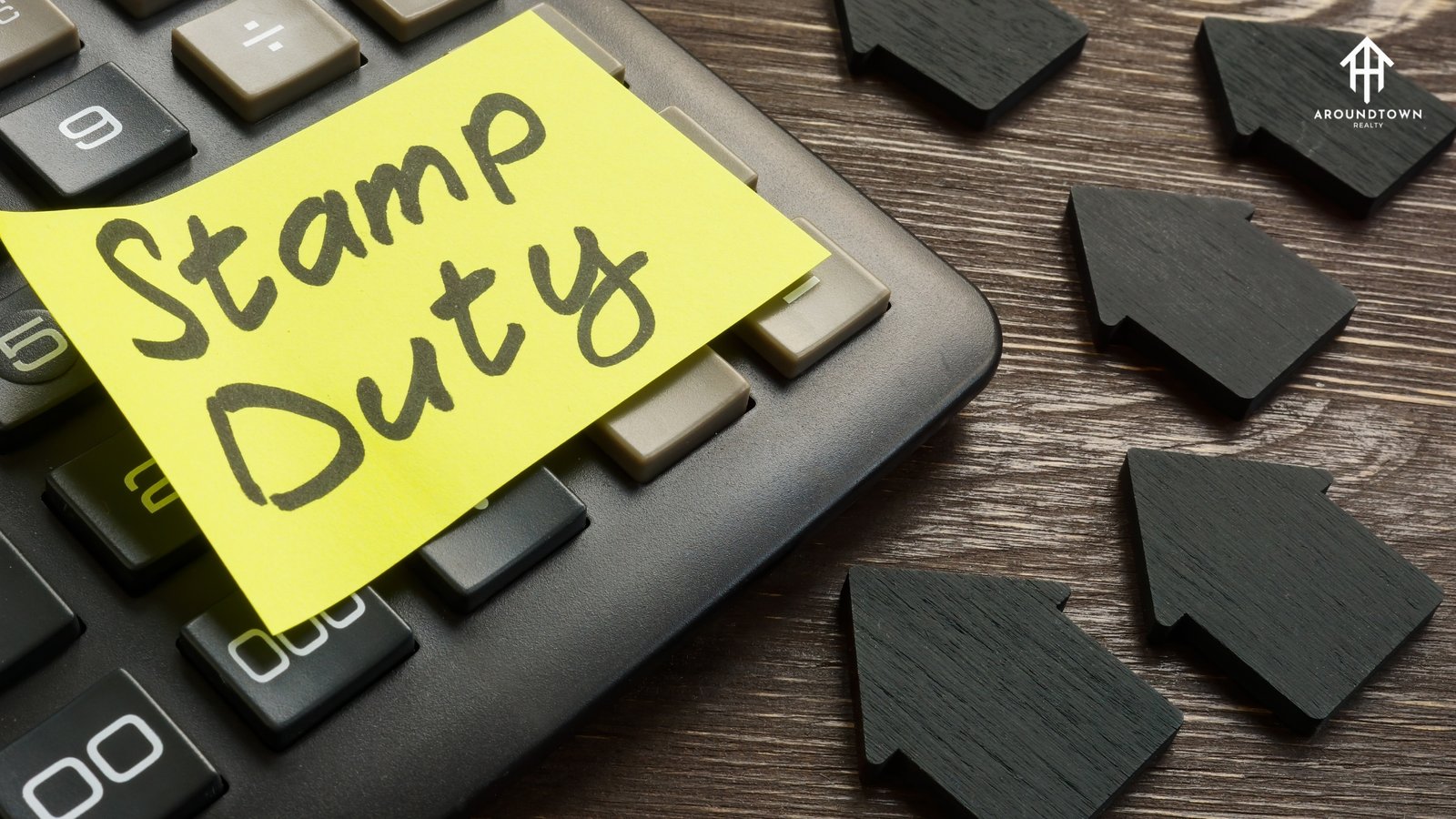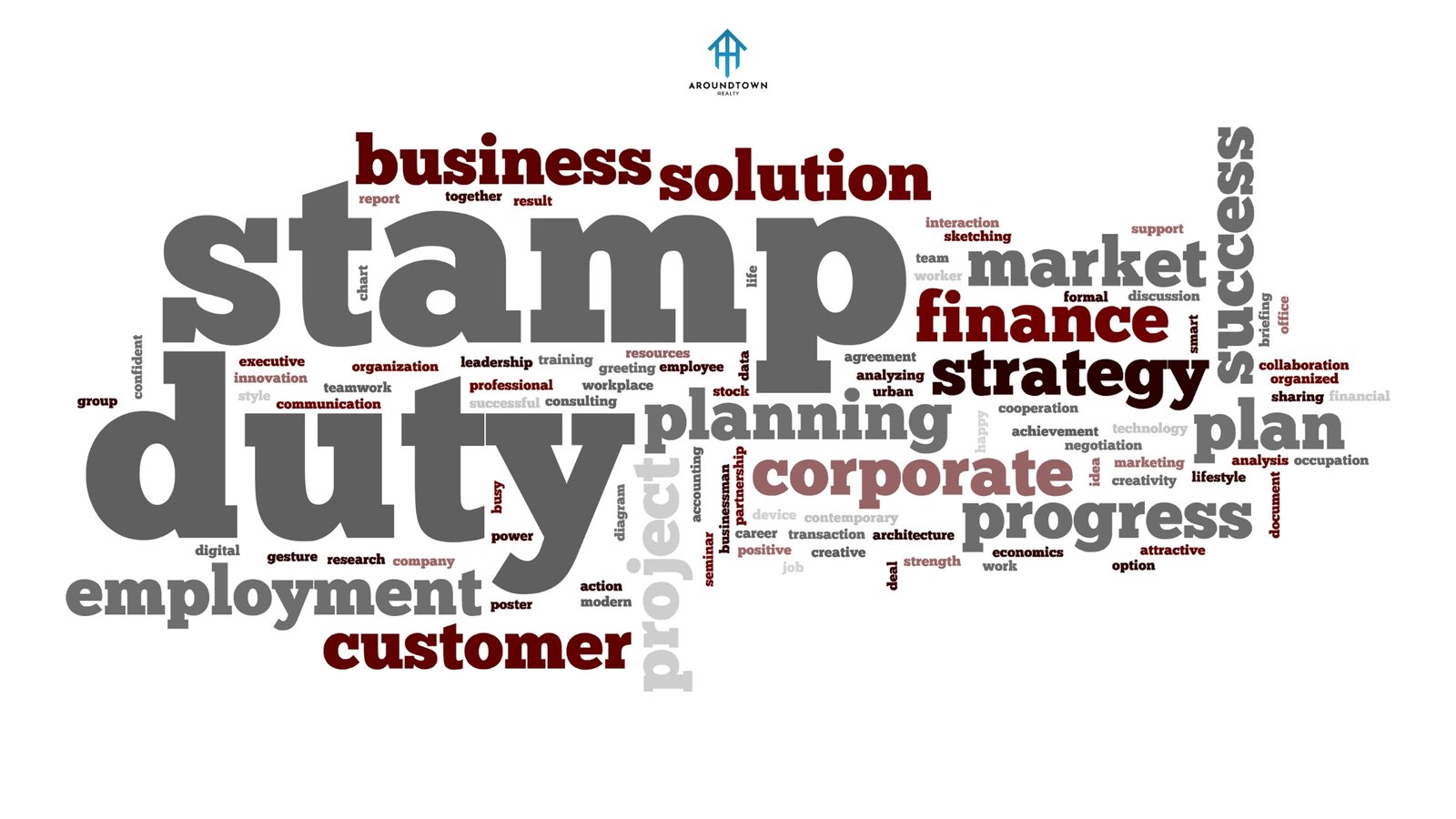Buying property in Gujarat? Understanding stamp duty in Gujarat could mean the difference between saving lakhs of rupees or facing unexpected financial burdens. As of June 2024, stamp duty rates in Gujarat range from 3.9% to 7.5% of your property’s value – meaning a ₹1 crore property could attract ₹3.9-7.5 lakh just in stamp duty fees. Shockingly, 68% of property buyers either overpay or face legal issues due to stamp duty miscalculations (Gujarat Revenue Department, 2023).
What Exactly is Stamp Duty in Gujarat?

Stamp duty is a state government tax levied on property transactions to legally validate documents under the Gujarat Stamp Act, 1958. Think of it as the government’s “processing fee” to officially recognize your property ownership. Unlike GST which goes to the central government, stamp duty remains with the state – contributing ₹9,872 crore to Gujarat’s treasury in 2023 alone.
Key Characteristics of Gujarat Stamp Duty:
- Mandatory for all property transactions above ₹100
- Paid before registration (no stamp duty = no legal ownership)
- Based on either agreement value or circle rate (whichever is higher)
- Varies by property type, location, and buyer demographics
Real-Life Impact: For a ₹75 lakh apartment in Ahmedabad, proper stamp duty planning helped the Mehta family save ₹1.12 lakh through strategic ownership structuring.
Current Stamp Duty Rates in Gujarat
As of 2025, the stamp duty rates in Gujarat are structured as follows:
- For Male Buyers: 4.9% of the property’s market value.
- For Female Buyers: 4.9% of the property’s market value.
- For Joint Ownership (Male and Female): 4.9% of the property’s market value.
These rates are subject to change based on government policies, so it’s advisable to verify the current rates before proceeding with any transaction.
Registration Charges in Gujarat

In addition to stamp duty, buyers must pay registration charges to legally record the property transaction. In Gujarat, the registration charge is typically 1% of the property’s market value, subject to a maximum limit set by the government. This fee covers the cost of legally documenting the transaction in government records.
Factors Influencing Stamp Duty Rates
Several factors can affect the amount of stamp duty payable:
- Property Location: Urban properties may attract higher stamp duty compared to rural properties.
- Property Type: Commercial properties often have higher stamp duty rates than residential ones.
- Property Usage: Properties intended for industrial use might have different rates.
- Amenities and Facilities: Additional facilities like swimming pools or clubhouses can increase the property’s value, thereby increasing the stamp duty.
How Stamp Duty is Calculated: The Complete Formula

Calculating your exact stamp duty involves three key steps:
Step 1: Determine Property Valuation
The taxable value is the higher of:
- Your actual purchase price (agreement value)
- Government’s circle rate (jantri rate)
Example: If you buy for ₹80 lakh but the circle rate is ₹85 lakh, duty applies to ₹85 lakh.
Step 2: Apply Location & Category Rates
Use the tables above based on:
- Urban/rural classification (check municipal boundaries)
- Residential/commercial use
- Buyer demographics (gender benefits)
Step 3: Add Registration Fees
- 1% of property value (capped at ₹20,000)
- ₹100-500 for miscellaneous charges
Calculation Example:
- Property Value: ₹90 lakh (urban residential)
- Stamp Duty: 4.9% of ₹90L = ₹4,41,000
- Registration: 1% of ₹90L = ₹20,000 (capped)
- Total Payable = ₹4,61,000
11 Legal Ways to Reduce Your Stamp Duty Payment
Savvy buyers can save substantially through these government-approved methods:
1. Female Ownership Strategy
- Save 1% by registering in woman’s name
- Joint ownership with female family member qualifies
2. Property Type Optimization
- Agricultural land conversions can save 2-3%
- Mixed-use properties may qualify for lower rates
3. Location-Based Savings
- Rural areas offer 1% lower rates
- Special zones like GIFT City have concessions
4. Transaction Timing
- Seasonal amnesty schemes (often 10-20% discount)
- End-of-financial-year promotions
5. Document Structuring
- Family settlement deeds (lower than sale deeds)
- Partition deeds for inherited properties
6. Government Incentives
- Green building discounts
- Affordable housing schemes
- Senior citizen benefits
Case Study: The Patel family saved ₹2.37 lakh on their ₹1.5 crore Ahmedabad home by combining female ownership with an amnesty scheme.
The Stamp Duty Payment Process: Online vs Offline

Online Payment (Recommended)
- Visit Gujarat e-Dhara Portal
- Select “e-Stamping” option
- Enter property details:
- Location
- Valuation
- Buyer/seller information
- Pay via:
- Net Banking
- UPI
- Credit/Debit Card
- Download e-Stamp Certificate (valid for 6 months)
Processing Time: 15-45 minutes
Offline Payment
- Visit authorized centers:
- Designated banks
- Treasury offices
- Sub-registrar offices
- Submit physical application:
- Form A
- Property documents
- ID proofs
- Payment methods:
- Demand draft
- Cash (up to ₹50,000)
Processing Time: 2-4 working days
Stamp Duty Exemptions and Concessions
The Gujarat government offers certain exemptions and concession:
Women Buyers: Historically, women have been offered concessions to encourage property ownership.
- Senior Citizens: Some concessions may be available for senior citizens.
- Agricultural Properties: Lower rates might apply to agricultural land transactions.
It’s essential to consult the latest government notifications or a legal expert to understand current exemptions.
Common Stamp Duty Scams & How to Avoid Them
1. Under-Valuation Fraud
- Modus Operandi: Showing lower sale price to reduce duty
- Risk: Property seizure + 200% penalty
- Prevention: Always declare actual transaction value
2. Fake e-Stamps
- Red Flag: Agents offering “discounted stamps”
- Verification: Validate on IGRS Gujarat
3. Document Type Manipulation
- Trick: Misclassifying sale deeds as gifts
- Penalty: Full duty + 2% monthly interest
4. Builder-Led Schemes
- Scam: “Stamp duty included” offers hiding actual costs
- Solution: Get itemized cost breakdown
Recent Case: Surat builder fined ₹27 lakh for fake stamp papers in 2023.
Updates in Gujarat Stamp Duty Regulations
- Mandatory Aadhaar Linking for all registrations
- Blockchain Verification pilot in Ahmedabad
- Higher Penalties for undervaluation (up to 300% of evaded duty)
- Digital-Only Payments for transactions above ₹10 lakh
- Automatic Circle Rate Updates quarterly
Conclusion:
Understanding stamp duty in Gujarat is essential to avoid unexpected costs and legal issues. Being aware of the applicable charges, exemptions, and payment processes can simplify your transaction. Always calculate and pay stamp duty on time to prevent legal complications.
Need more insights on property taxes and legalities? Visit Around Town Realty for detailed real estate resources!
FAQs
1. Can I pay stamp duty in installments?
No, full payment required before registration.
2. Is stamp duty refundable?
Only if registration fails (with court order).
3. Do NRI buyers pay higher rates?
Same rates but require additional documents.
4. How to check circle rates?
Visit Jantri Portal.
5. Can I claim stamp duty in tax deductions?
Yes, under Section 80C (up to ₹1.5 lakh for first home).









